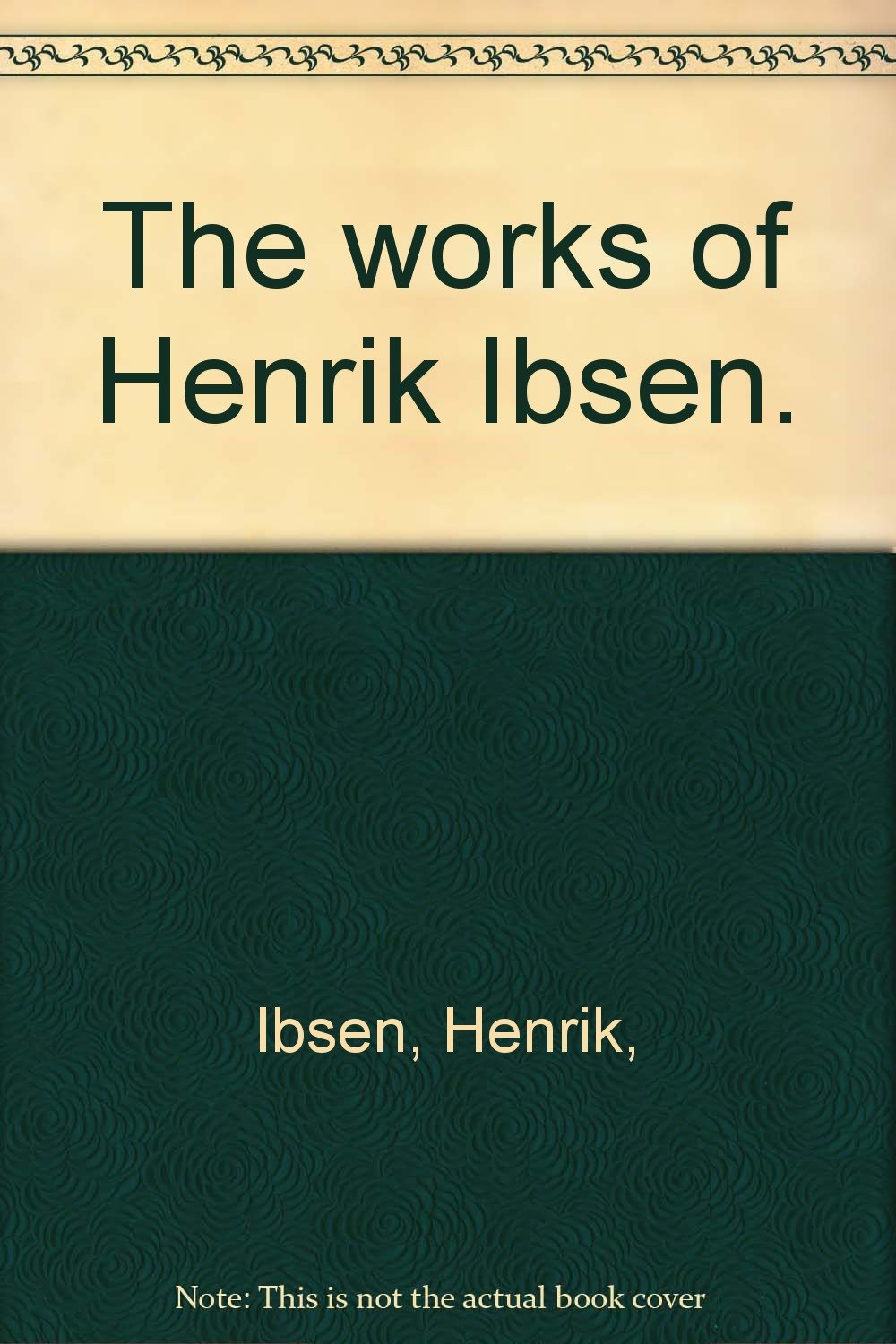

 |

|

The average rating for Works of Henrik Ibsen based on 2 reviews is 3.5 stars.
Review # 1 was written on 2016-03-13 00:00:00 Charles Martin Charles MartinI enjoyed this play, something mysterious about it; not a mystery, just a somewhat strange story line that is less about the sea than you might think from the title. Ibsen's characters were beautifully conceived, probably the best thing about the play, and the ending has a bit of a twist. |
Review # 2 was written on 2015-03-11 00:00:00 Cynthia Cole Cynthia ColeA lost love returns 15 March 2015 Okay, I have mentioned before that reading a play can be somewhat more difficult that watching it performed; one of the reasons being that sometimes it is difficult to differentiate the characters. However, after being forced to put this play down after reading the first act because I had to go to work (and unfortunately I don't work in a job where I can put my feet up on a desk and read a book while video cameras monitor the outside of a warehouse making sure that nobody is trying to break it - I did have a friend who had a job like that, and that is basically what he did all night), I suddenly discovered another problem with plays - they are meant to be read in one sitting. Unfortunately they are not like novels where you can put them down and pick them up later, because it can be a lot easier to lose your place in a play than in a novel (or maybe it is just me). Anyway, this play is about a woman who grew up in a lighthouse. She then met and fell in love with a sailor but when the sailor left to go out to sea he got into a bit of trouble (he killed his captain) and was forced to abandon ship - thus becoming lost and presumed dead. After a period of mourning the lady, Ellie, goes off and marries a doctor and moves inland. However, years later a stranger rocks up at her front door, introduces himself to her as her highschool sweetheart (for want of a better word) and asks her to elope. One of the things that strikes me in this book is how the loves of our youth can hold on to us for years. I'm not talking about pining over somebody who is probably not all that good for you and rejecting all other advances because you want that one person, I am talking about a romance that happened years ago, back in our teenage years (or early twenties) and then, for some reason or another (maybe they moved school), the relationship comes to an end. However what Ibsen is exploring here is how these loves can linger on, and how a part of us wishes that our lost lovers will someday return and we can begin from where we finished. I'm not so much talking about those relationships that ended because we broke up, but rather those ones that ended because of inconvenience - such as the case in this book, namely he went away, a disaster happened, and he was left for dead. In my mind I picture the highschool romance that ended because the parents found a job in another city (or even another suburb) and because of that we parted company as one of us moved away. There was no Facebook, or email, or even mobile phones, back in those days - if somebody moved, they were gone, and gone for good. Maybe, one day, we would meet again, but I think of all the people that I knew from school, and only a handful of us have reconnected over social media (usually Facebook). The other interesting thing about this play is how Ibsen uses the image of the mermaid. At the beginning of the play somebody is a painting a picture of a mermaid, and at the end of the play Ellie makes a comment about how she, the mermaid, has made her decision. It is interesting how Ibsen uses this imagery as there are a couple of things I have noticed. First of all, as we are aware, the mermaid is tied to the sea, but the other interesting thing is that mermaids aren't necessarily good creatures (unlike our modern legends, thanks to Hans Christian Andersen). Some legends have mermaids luring sailors to their deaths, while others would stir up storms and tempests - in general heralding bad luck. This is not necessarily the case with this play, even though Ellie grew up in a lighthouse, which adds to the mermaid allusion as they are generally built on rocks out at sea, the traditional home of the mermaid. However, instead of being an ill omen, they are a warning to passing sailors, crying out 'beware for here lies danger'. Anyway, while it would be good to continue on exploring the allusion, I think I will leave it at that because that would end up giving away the ending, and for some reason I really don't want to do that. |
CAN'T FIND WHAT YOU'RE LOOKING FOR? CLICK HERE!!!